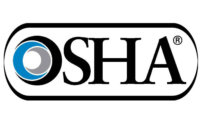Want to enhance your chances of getting hired as an EHS generalist – also known as an environmental health and safety multidisciplinary professional? In addition to the necessary education, make sure your communication skills – both oral and written – are well developed.
That’s one of the conclusions in a white paper just released by the American Industrial Hygiene Association (AIHA) that focuses on the hiring requirements and expectations from stakeholders for recent EHS generalist graduates.
Developed as a result of a survey conducted by AIHA in cooperation with the American Board of Industrial Hygiene (ABIH) and the National Association for Environmental Management (NAEM), the white paper took a close look at unique skill sets needed to perform this type of job as well as the entry-level opportunities available to them.
“Because EHS generalists may practice across all three disciplines—environmental health and safety—relevant education and credentials are essential to, first, getting hired and, second, quickly becoming effective in the position,” according to the AIHA.
Influencing others, writing technical briefs
The report concludes that some of the most desirable communication skills employers seek related to an EHS generalist position are: influencing others, training workers, presenting information to nontechnical staff, and writing technical briefs for different audiences.
The white paper notes that skills in communication, project management and program assessment affect the way that EHS generalists apply their education in practice and contribute to their success, and that these skills may not be well developed by academic programs.
AIHA CEO Lawrence Sloan said his organization is “well positioned to assist in educating EHS generalists on the fundamentals of exposure assessment and control. Equally important, we strongly support the pursuit of 'soft skills' that will help enhance the competitiveness of these professionals in their careers.”
Able to make the business case for change
The “soft skills” emphasis was echoed by Carol Singer Neuvelt, NAEM Executive Director. “To be successful in an environmental, health, safety and sustainability career, aspiring leaders need to learn how to develop relationships across silos, to explain their expertise with others and to effectively make the business case for change,” she said.
ABIH CEO Ulric Chung noted that "the contexts where industrial hygiene practitioners can provide protection and value continue to broaden, creating the need for current and future practitioners to adapt existing knowledge and skills into new areas of practice and to develop new knowledge and skills.”
The report concludes that academic learning may fall short when it comes to the technical abilities that hiring managers are looking for, but that those deficiencies can be corrected through internships and other practical, on-the-job experience.
“Professors recognize that their programs impart the necessary knowledge and technical skills but are not able to provide practical application experiences, resulting in a gap between academic preparation and hiring managers' expectations. This disconnect could be resolved by more practical experience, such as internships, as well as by informational interviews between hiring managers and EHS generalist candidates.”
The survey was conducted with college graduates from 2018. Participants represented a broad cross section of industries, and most participants worked for organizations with more than 500 employees. You can download a free copy of the white paper here .
About AIHA
Founded in 1939, AIHA is a nonprofit organization serving professionals dedicated to the anticipation, recognition, evaluation, control and confirmation of environmental stressors in or arising from the workplace that may result in injury, illness or impairment, or affect the well-being of workers and members of the community. AIHA provides comprehensive education programs and other products and services that help its members maintain the highest professional standards.
More than half of AIHA's nearly 8,500 members are Certified Industrial Hygienists, and many hold other professional designations. AIHA serves as a resource for those employed in the industrial, consulting, academic and government sectors. Learn more about AIHA at www.aiha.org.
About ABIH
The American Board of Industrial Hygiene is the premier credentialing organization for professions based on the science of protecting and enhancing the health, safety and environment of people at work and in their communities. It serves its credentialed practitioners by establishing and administering a valid, reliable and rigorous credentialing process to protect the public and to meet the needs of employers. Learn more about ABIH at www.abih.org.
About NAEM
The National Association for Environmental Management empowers corporate leaders to advance environmental stewardship, create safe and healthy workplaces, and promote global sustainability. As the largest community for EHS and sustainability decision makers, NAEM provides peer-led educational conferences and an active network for sharing solutions to today's corporate EHS and sustainability management challenges. Visit NAEM online at www.naem.org.



